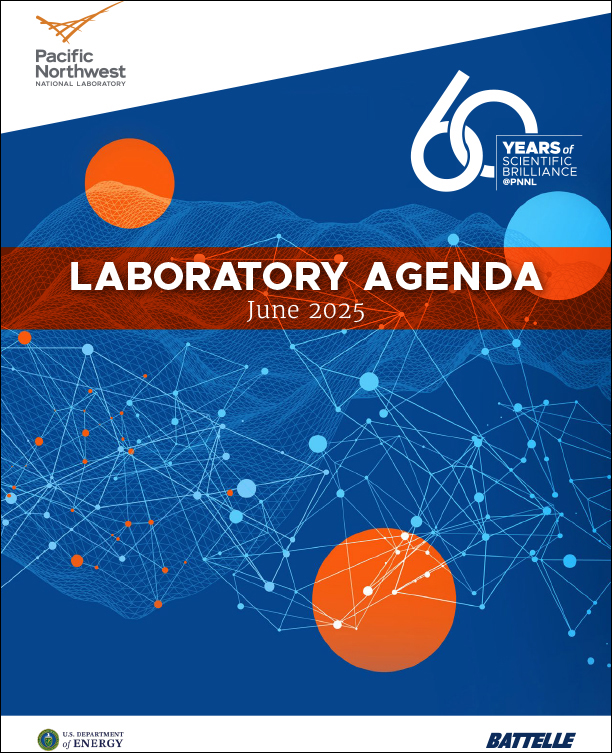Lab Objectives
Lab Objectives

Learn more about how PNNL is building on our history to set our objectives for the future.
PNNL provides the science needed to support U.S. government efforts to make Americans’ lives better through access to plentiful and reliable energy, dominance in the emerging field of AI and its use, and the assured safety, security, and prosperity of our nation.
PNNL specializes in problems demanding a deep understanding of large-scale, complex systems and succeeds by applying end-to-end capabilities in characterization, modeling, prediction, synthesis, detection, and mitigation to the challenge at hand. In the six major laboratory objectives that follow, you will see our plans for the future.
Enhancing Grid Reliability and Security with Advanced Controls and Energy Storage
PNNL will develop and demonstrate next-generation grid controls and energy storage technologies to meet rising electricity demands while increasing the reliability and security of the U.S. electric grid.
Assured Autonomy
By advancing the fundamental understanding of mathematics and computing to characterize, predict, and control AI behavior, PNNL will enable autonomous science, energy, and security applications.
Materials Worth Making
PNNL will accelerate the innovation of deployment-ready resilient materials by advancing scalable synthesis methods and predictive analytics of degradation processes, enabling technologies that deliver reliable and affordable energy to the United States.
Understanding, Predicting, and Controlling the Microbial Phenome
PNNL will decipher the molecular basis of the microbial phenome to advance function-driven design and control of microbial systems, enhancing our understanding of the living Earth system while also advancing the future of scalable biotechnologies.
Transformational Catalysis for Chemical Conversions
PNNL will advance the state of the art of catalysis science and engineering across scales to accelerate the development of novel chemical processes to exploit alternative reagent streams and energy carriers.
Earth and Energy System Dynamics
PNNL will develop and deploy dynamic digital testbeds that analyze the exposure, resilience, and growth potential of energy and related systems in the context of extreme events and complex multisectoral interactions.